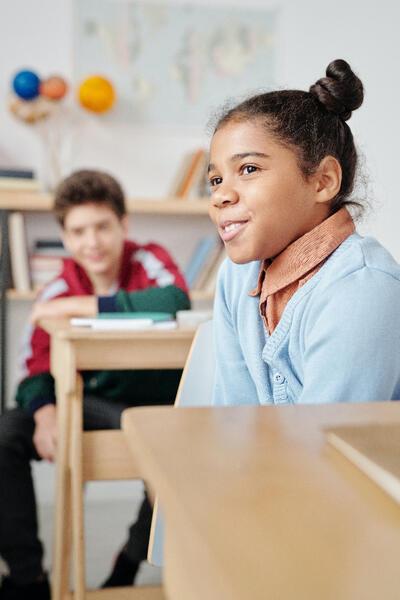If your family income is not too high in relation to your family size, you can receive a school allowance for your child.
Breadcrumb
What are the conditions for receiving a school allowance?
There are financial, educational and nationality conditions.
1. What are the financial conditions?
What is the family income?
- If your income is above the income threshold, you will not receive an allowance.
- The farther your income is below the income threshold, the higher the allowance may be.
- If your income from property is too high compared to the rest of your income, it is possible that you will no longer receive any allowance.
A foster child that has already lived more than 12 consecutive months in the same foster family or consecutively in several different foster families on the 31st of August of the school year concerned, is exempt from the financial conditions.
2. What are the educational conditions?
Your child must be registered in a school and have sufficient attendance. The child may also not be too old.
Which types of education are eligible?
Every pre-school, primary or secondary educational institute that is recognised by the Flemish Community.
That is true of almost all Dutch-speaking schools in Flanders and in the Brussels-Capital Region.
Students in Basisverpleegkunde (basic nursing training) may also be entitled to a school allowance.
A pupil in secondary education may also be in the 'work-based learning' or 'learning and working' system. There are then teaching periods in a recognised school or at Syntra, combined with a part-time work placement or (paid) employment in a company.
A pupil who attends lessons abroad or at a school of the French or German-speaking Community can be eligible if that education is recognised by the competent authority and there is no comparable education in Flanders. That rarely occurs.
Contact your payment fund!
Which types of education are not eligible?
- Home schooling
This is, for example, when parents teach their children themselves. Taking online lessons from home at an accredited Flemish school is not homeschooling. - Hospital schooling
- Private schooling
Eureka, Leerwijzer, Safe and Sint-Ignatius private schools are recognised and their pupils are thus entitled to an allowance. - Second-chance education (adult education centre)
Up to what age is your child eligible?
The age threshold for a school allowance is 22.
There is no age threshold for students in Basisverpleegkunde (basic nursing training) and pupils in special needs secondary education.
Once these pupils reach the age of 25, they must submit an application themselves. Contact your payment fund!
How long does your child have to be enrolled?
Your child must remain enrolled until the last day of school of the school year. In theory, that's the 30th of June.
If your child wants to change schools or (in secondary school) change courses, it must be re-enrolled within 15 calendar days. This means, for example, that unsubscribing just before the Christmas holidays and registering the first day after the Christmas holidays will cause you to lose the school allowance!
There is one exception: if your child obtains the 'final qualification' (the diploma) at school before the 30th of June for the course in which it is enrolled, it does not have to remain enrolled. For example, in modular education, pupils can graduate at the end of January.
When is your child 'sufficiently present'?
Your child does not only need to be registered in a school, they must also attend it.
To be entitled to a school allowance, your child must have sufficient school attendance.
3. What are the nationality conditions?
Your child must have the Belgian nationality.
A non-Belgian child can be eligible:
- With a permanent residence permit
- If it is permitted or authorised to reside in Belgium (family reunification);
- If recognised as a refugee or under subsidiary protection;
- If recognised as a single foreign minor;
- If recognised as a victim of trafficking in human beings or smuggling;
- If they have already resided with the same family or consecutively with several different families for more than a year as a foster child or a guest.
A residence permit based on studying, voluntary work or work as au pair is not sufficient.
The right to reside of a parent does not suffice.
Wat als je een schooltoeslag kreeg, maar je niet (meer) aan alle voorwaarden voldoet?
Soms kan het gebeuren dat je (een deel van) de schooltoeslag moet terugbetalen, omdat achteraf blijkt dat je niet (meer) aan alle voorwaarden voldoet.


